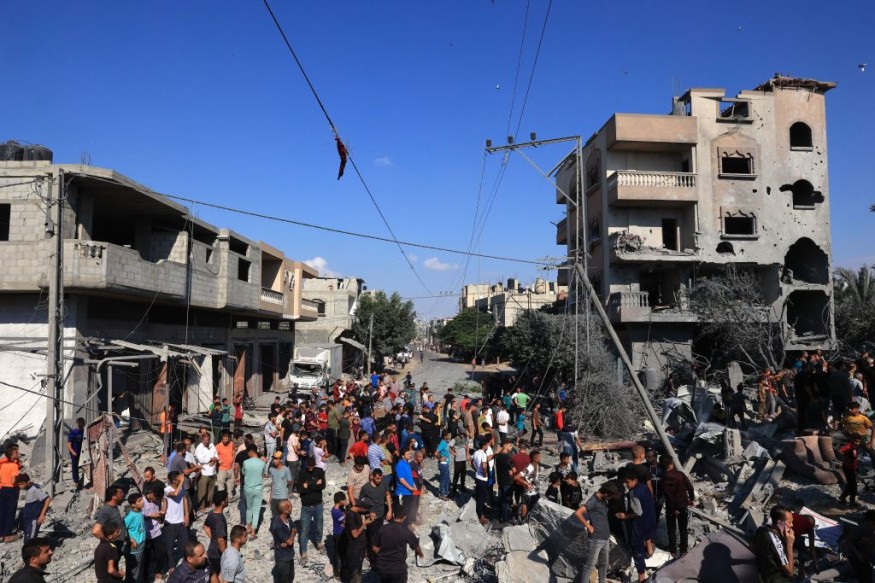
The United Nations is concerned that millions of Palestinians have restricted access to safe drinking water, as Israel imposed a total blockade on the territory following deadly Hamas attacks.
According to the United Nations Relief and Works Agency for Palestine Refugees in the Near East (UNRWA), over two million people are now at risk as water runs out.
Matter of Life and Death
According to the agency, no humanitarian supplies have been permitted into Gaza for a week now.
The Gaza Strip is running out of clean water after its water plant and public water networks went offline.
Palestinians are now compelled to drink contaminated well water, raising the danger of waterborne diseases.
"It has become a matter of life and death. It is a must; fuel needs to be delivered now into Gaza to make water available for 2 million people," said Philippe Lazzarini, UNRWA Commissioner-General.
Israel has also imposed an electricity blackout in Gaza since Wednesday, affecting water delivery.
Meanwhile, hundreds of people have fled northern Gaza after Israel ordered them to do so amid airstrikes, which the UN described as "impossible."
Since last week, about one million people have been displaced.
US National Security Adviser Jake Sullivan said Israeli authorities had told him that water had been restored in southern Gaza.
However, Adir Dahan, a spokeswoman for Israel's energy and water ministry, stated that it was only running at one site in southern Gaza.
Aid workers in Gaza claimed they had yet to see evidence that the water was flowing again, and a Gaza government official said it was not.
Food and Fuel Blockage
As food shortages loomed, Gazans queued for hours outside bakeries to purchase bread. Umm Abdullah Abu Rizq arrived around 7:00 a.m. hoping to buy food to feed her family and the others sheltering in her home.
"Is this enough for seven families and their children?" she asked, holding a small plastic bag with bread. She was not able to buy more.
Relief organizations urged the establishment of an emergency corridor for the flow of humanitarian aid in order to safeguard the nearly 2 million civilians in Gaza.
According to Ahmed al-Mandhari, the World Health Organization's regional director, there is no indication that such a corridor will be established anytime soon.
The agency has supplies on the Egyptian side of the Rafah border but no permission from either Egypt or Israel to distribute them.
Egypt's Foreign Minister Sameh Shoukry said Israel "has not taken a position" on allowing access.
UNRWA appealed for the siege on humanitarian assistance to be lifted now.
"We need to truck fuel into Gaza now. Fuel is the only way for people to have safe drinking water. If not, people will start dying of severe dehydration, among them young children, the elderly and women," Lazzarini said.
According to the Gaza Health Ministry, at least 2,778 people have been killed and 9,700 have been injured in the ongoing conflict.
Over 1,400 Israelis have been slain, the vast majority of them were civilians.
Related Video:
© 2025 NatureWorldNews.com All rights reserved. Do not reproduce without permission.





